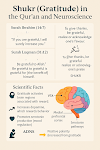Understanding the Dynamic Number System: A New Era in Mathematical Thinking
In the ever-evolving landscape of mathematics and its applications, the Dynamic Number System (DNS) emerges as a revolutionary framework that redefines our understanding of numbers and their relationships. This innovative approach not only expands the horizons of traditional mathematics but also offers profound insights into various fields including computer science, finance, and philosophy.
What is the Dynamic Number System?
The Dynamic Number System is a versatile framework designed to accommodate a wide range of numerical values, from the incredibly small (pico scale) to the extraordinarily large (quetta scale). At its core, DNS challenges the conventional boundaries of number systems by integrating various types of numbers—natural, whole, integers, rational, real, and complex—into a cohesive structure.
Key Features of DNS
-
Broad Inclusivity: DNS encompasses all traditional number systems, allowing for a holistic understanding of numbers. This inclusivity enables flexible mathematical operations and interpretations that traditional systems may not accommodate.
-
Dynamic Nature: Unlike static number systems, DNS allows for dynamic calculations that can adapt to changing conditions, making it highly applicable in real-time data analysis and decision-making.
-
Scalability: DNS operates across multiple scales, from the tiniest pico values (10^-12) to the largest quetta values (10^30). This scalability provides researchers and practitioners with the tools to explore both micro and macro-level phenomena.
The Significance of Al-Asr in DNS
A pivotal component of DNS is the concept of Al-Asr, which emphasizes the importance of time and actions in shaping our realities. Surah Al-Asr from the Quran serves as a profound reminder of the fleeting nature of time and the significance of righteous deeds. In the context of DNS, it illustrates that every moment and every action—no matter how small—contributes to a larger narrative of growth and understanding.
Why Al-Asr Matters
- Time as a Resource: Al-Asr highlights that time is a limited resource. In DNS, this concept reinforces the idea of making meaningful choices that lead to positive outcomes.
- Interconnectedness: The teachings of Al-Asr remind us of the interconnected nature of our actions. Just as numbers in DNS interact with one another, our actions impact the world around us.
Applications of DNS
In Computer Science
The Dynamic Number System can revolutionize data processing and computational tasks. For instance, in situations requiring arbitrary precision—such as scientific computing or cryptography—DNS can provide the necessary accuracy without the limitations of traditional floating-point arithmetic.
In Financial Mathematics
DNS can enhance financial modeling by allowing for dynamic adjustments as market conditions fluctuate. This adaptability is crucial for risk management and investment strategies, where precision is paramount.
Conclusion
The Dynamic Number System represents a groundbreaking approach to understanding and utilizing numbers in our complex world. By integrating traditional number systems and expanding their applications, DNS not only offers new mathematical insights but also serves as a guiding principle in various disciplines.
As we continue to explore the potential of DNS, it is essential to appreciate the underlying philosophies it embodies, particularly the concepts of time, action, and interconnectedness illustrated by Al-Asr. Embracing this dynamic framework invites us to rethink our relationship with numbers and the world around us.





0 Comments